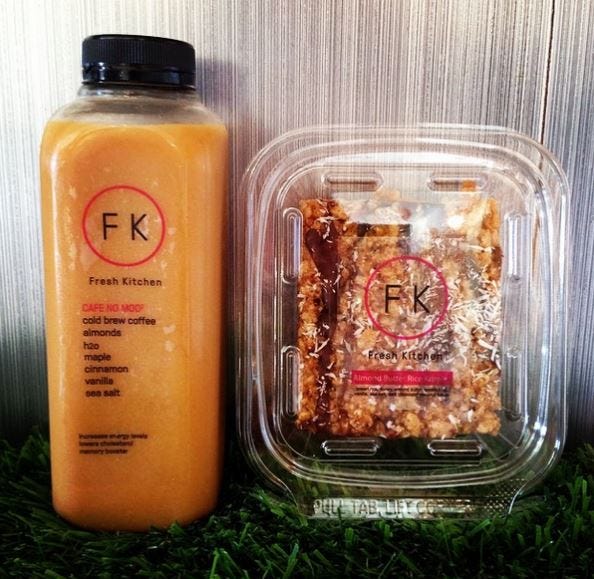Why Are Food Labels Important?
- Dec 5, 2022
Food labels are something we see every day. Most people might not even think about the food labels they see.
They just pick up the food product they like and purchase it. This is because many dont know how, or dont want to read the food label.
But can you blame the consumer?
Food labels contain lots of information about the food packed into a small label!
And we didnt even mention the nutrition facts label yet.
But the truth is, food labels are very important. Why are food labels important?
They label important information about the food product. These labels include daily calories, allergy information, sugars, proteins, and vitamins. These food ingredients are vital for human health.
Food labels are important for a variety of reasons, including:
-
Health information: Food labels provide important information about the nutritional content of the food, including the amount of calories, fat, carbohydrates, and other nutrients. This information can help people make informed decisions about what to eat, particularly for those with dietary restrictions or health conditions.
-
Food safety: Food labels include information about the ingredients used in the food, as well as any potential allergens. This information can be critical for people with food allergies, as well as for those who need to avoid certain ingredients for health or religious reasons.
-
Quality control: Food labels can provide information about the production and handling of the food, including the date of manufacture and storage conditions. This information can be used to ensure that food is safe to eat and of the highest quality.
-
Marketing and advertising: Food labels can also serve a marketing and advertising function, by highlighting key features or benefits of the food. For example, a label may promote the use of natural ingredients, or highlight the food's low calorie or high fiber content.
-
Legal compliance: Food labels must comply with various legal requirements, such as the Fair Packaging and Labeling Act and the Food, Drug, and Cosmetic Act. These requirements ensure that food labels are accurate and provide consumers with the information they need to make informed decisions about what they eat.
For example, if a food contains a popular food that can cause an allergic reaction, that will be on the food label. This is required per the food allergen Labeling and Consumer Protection Act.
A simple food label law like this can be life or death for a person with a peanut allergy. This is because the FDA has many food label law regulations. So lets get to it, why are food labels important?
5 Important Food Labeling Laws

Can you read these food products without labels? What is the flavor? How much sugar is in it?
1. Food labeling laws can be confusing. As you know trying to read food labels in the grocery store can be confusing. And if you are trying to print custom food labels it can be even more confusing to stay compliant with the food labeling laws.
2. Food labels are regulated by Laws. The FDA enforces many of these food labeling laws. Food and drink beverage manufacturers need to stay within the guidelines set by the FDA for food labels.
3. Food Labels Must contain a nutrition label. The nutrition label is regulated by the FDA and must meet all guidelines. All mandatory ingredients must be included on your nutrition label.
4. Certain words are regulated by the FDA and other words are not. For example the term 'free range' chickens and "pastured raised" labels on chicken eggs are regulated by the FDA. Terminology like "Organic" is also strictly regulated and monitored on food labels.
5. Product food labels can be audited by the FDA at any time. So be sure to keep your food labels compliant.
FDA Label Regulations Explained

The FDA regulates many food and beverages that are sold in stores. This is because standardizing food regulations helps keep the consumer safe. Some examples of food label laws and regulations are below.
Food labels for organic eggs must meet the requirements:
1. Produced in accordance with the requirements specified in § 205.101. 205.101 says that small farms under a certain revenue dont need to pay for certification. This means if you sell less than $5,000 of organic products a year you dont need food certification.
2. There is also §§ 205.202 which says that any harvested crops that are sold, labeled or represented as organic must comply with §§ 205.203 - 205.206. The land must also have a run off and buffer zone to prevent unintended crop contamination. These are just some of the FDA laws that regulate the food industry.
Custom Food Labels

If your selling your product in retail stores it will need a UPC. This includes food products in retail stores. UPC barcodes can get printed on your food product labels by your label printer. You can make UPC barcodes from Barcodes Inc.
What items must I need to include on my food labels?
- The food name
- The food container's Weight
- The food company's name
- The food companies' address
- The food manufacturer and copacker
- Nutrition label
Nutrition Facts Label
The nutrition facts label is just as important as your primary food label.
To sell your food product in stores you will need both the primary food label and the nutrition facts label.
Nutrition labels provide the shopper with critical information on sugars, calories, vitamins, and protein. How to read nutrition labels is another challenge. By law Food nutrition labels must be somewhere on your bag, glass, jar, or container.
Why is the nutrition fact label important?
Because it allows the customer to read and see the nutrition facts. If your food labels dont have a nutrition label it can be audited by the FDA and they can remove your product from the stores.



